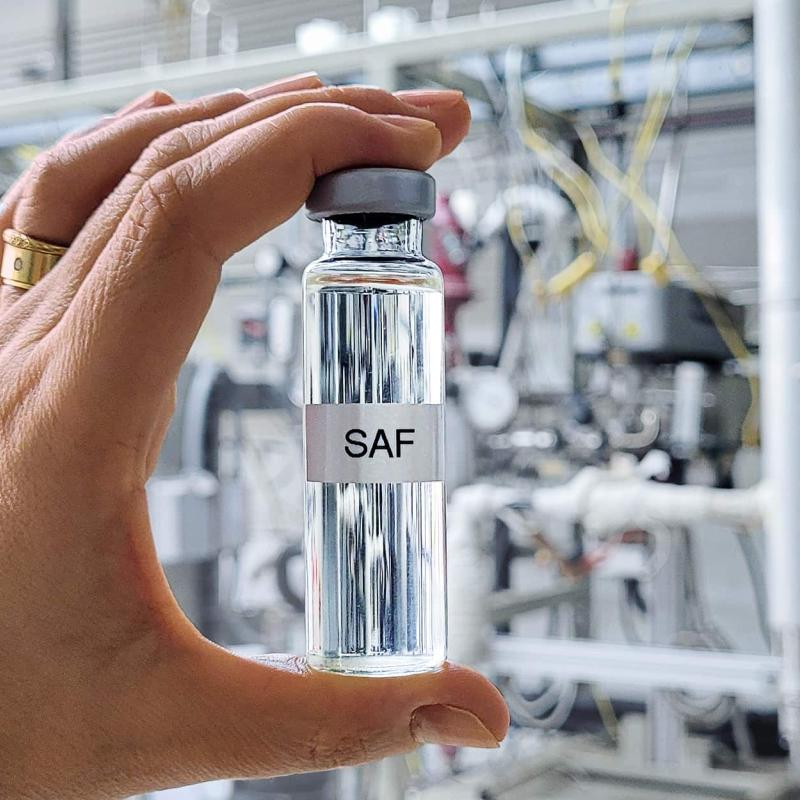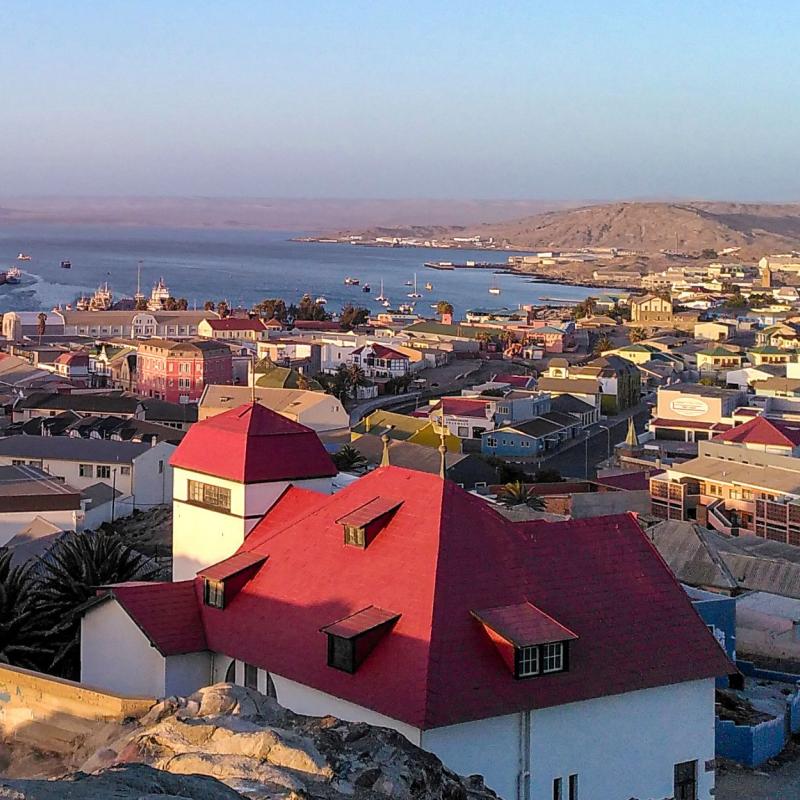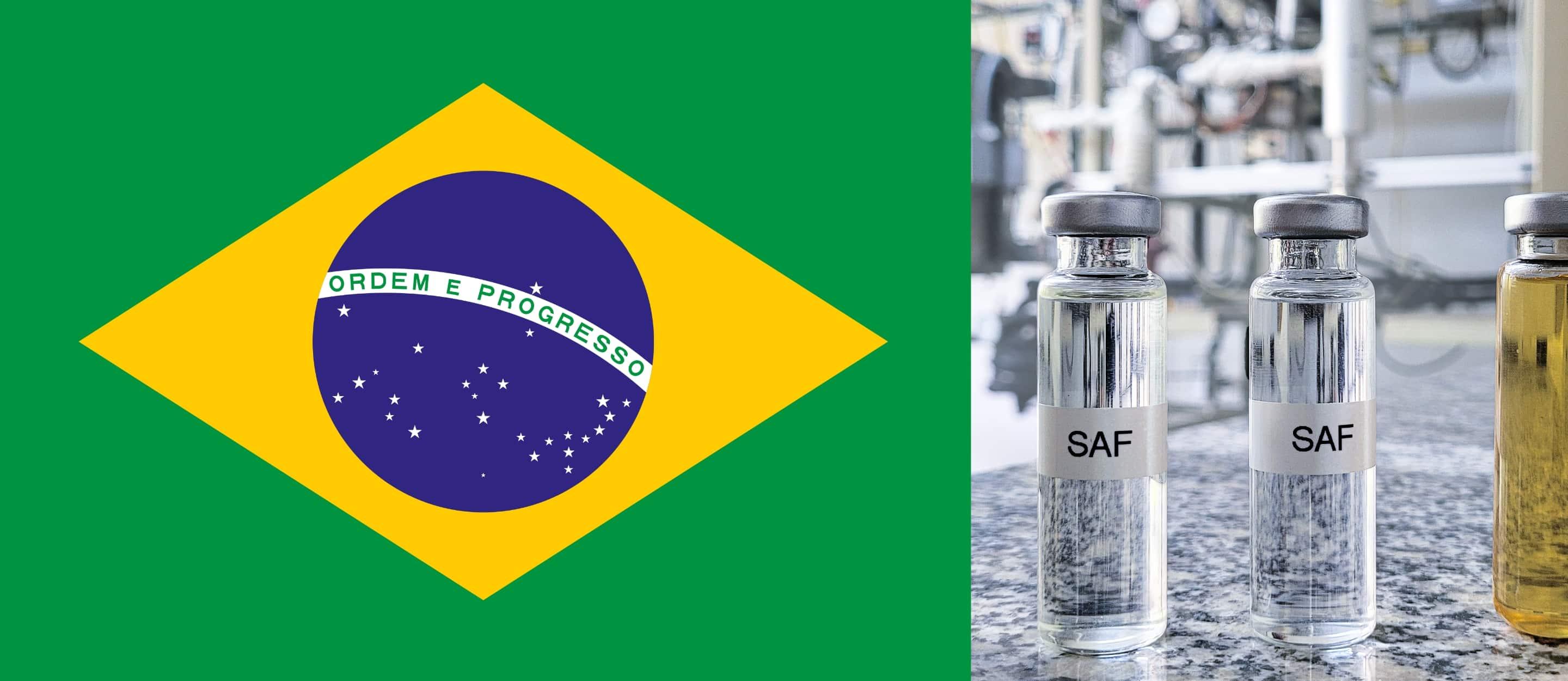 NASA/Scientific Visualization Studio - Renata Moura/GIZ Brasil
NASA/Scientific Visualization Studio - Renata Moura/GIZ Brasil
Green hydrogen pioneer
In Brazil, GIZ supports research and efforts to build a green hydrogen economy in a variety of ways. As a result, there has been an upsurge of interest from many stakeholders, including the private sector.
Green hydrogen plays a key role in the fight against climate change. It causes no CO2 emissions, can be used to store energy and is highly versatile. Green hydrogen is therefore crucial to a comprehensive global energy transition, particularly in those sectors – such as aviation, shipping and the production of steel, cement and artificial fertilisers – where switching to green electricity is difficult.
So far, the development of a global hydrogen economy is still in its infancy. Production is complex and expensive, requiring large quantities of renewable electricity. There is still a long way to go – in terms of research, pilot systems and the financial resources needed to build large-scale plants – before green hydrogen can be successfully produced on an industrial scale and accepted as an integral part of the future energy landscape.
Huge interest in green hydrogen
In 2021, acting on behalf of the German Federal Ministry for Economic Cooperation and Development (BMZ), GIZ set up a major new project called H2Brasil to support the country in this endeavour. ‘This is a huge package that includes a large number of individual measures,’ says project director Markus Francke. ‘Green hydrogen is becoming more and more important, and we have attracted a lot of interest through H2Brasil.’

‘Green hydrogen is becoming more and more important, and we have attracted a lot of interest through H2Brasil.’
Brazil is one of the pioneers of the energy transition. The country already obtains more than 90 per cent of its electricity from solar, wind, hydropower and biomass. Offshore wind farms are also being planned, and the Brazilian Government recently created the legal foundations for the development of a hydrogen economy by adopting a new law to promote green hydrogen.
In addition to research and development, H2Brasil also focuses on social aspects, such as vocational training, new jobs, inclusion and regional development. Let’s take a look at four examples.
Pilot plants to make synthetic kerosene
Aviation as a whole is very harmful to the climate, but changing this is particularly difficult. Switching to electric propulsion, as in the case of motor vehicles, is unrealistic in the foreseeable future. Batteries with the capacity to store such large amounts of energy would simply be too large and too heavy, especially over longer distances. One alternative is to develop new types of fuel known as sustainable aviation fuels (SAFs).
As part of H2Brasil, GIZ has facilitated the construction of four pilot plants to produce synthetic kerosene – in the north-eastern city of Natal, near Brasilia in the centre of the country, in Rio de Janeiro and in southern Brazil. In collaboration with universities and research institutes, research is being conducted at all four locations into alternative raw materials, such as biogas and residues from sugar cane production. These provide the carbon required to produce a clean version of crude oil when combined with green hydrogen. From airlines to aircraft manufacturers, there is now a great deal of private-sector interest in participating in these projects.
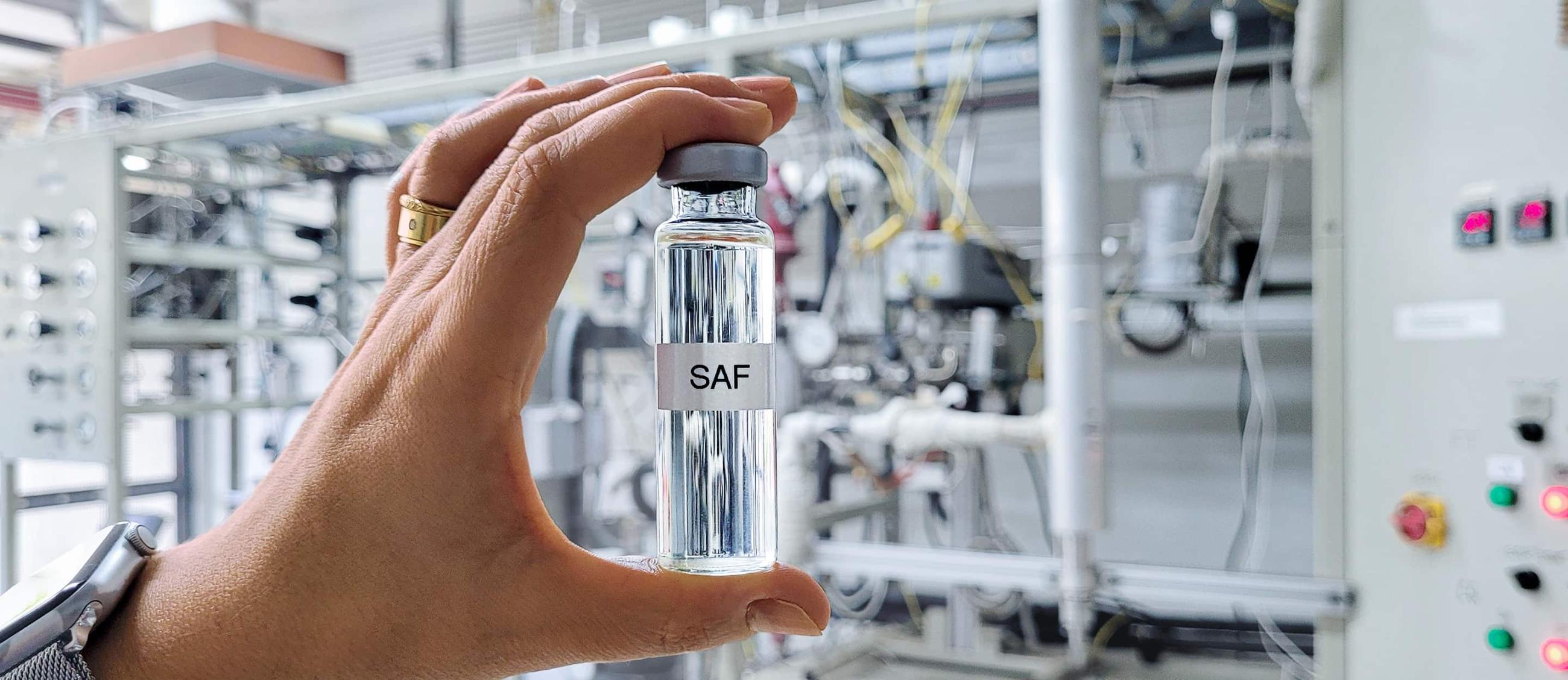 Renata Moura/GIZ Brasil
Renata Moura/GIZ Brasil
‘The demand for sustainable aviation fuels is huge’
Demand for sustainable aviation fuels (SAFs) is growing rapidly. In this interview, Fabíola Correia de Carvalho explains how research has joined forces with GIZ in Brazil to tackle this key issue for the future.
More
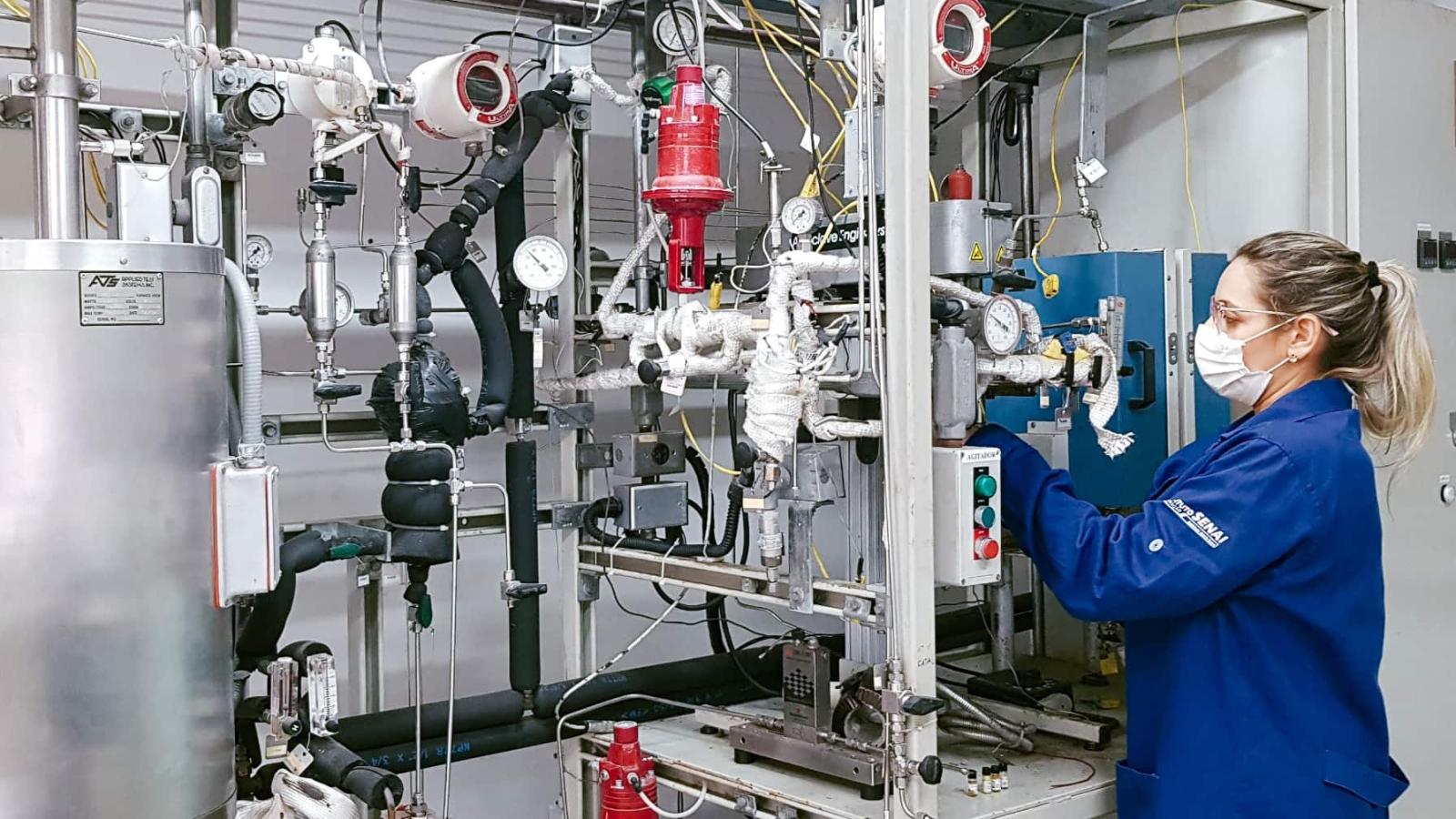 Renata Moura/GIZ Brasil
Renata Moura/GIZ Brasil
Hydrogen and Advanced Fuels Laboratory at the SENAI Innovation Institute for Renewable Energies in Natal
Powerhouse for sustainable fertilisers
A lot of energy is needed to produce artificial fertilisers, such as those based on nitrogen. The process generally uses fossil natural gas, which causes high greenhouse gas emissions. Brazil is heavily dependent on imports to meet its huge demand for nitrogen fertilisers, which have become significantly more expensive since the start of the Russian war of aggression against Ukraine. Against this background, the Solar Energy and Green Hydrogen Research Laboratory at the Federal University of Santa Catarina in Florianópolis in southern Brazil is creating a real win-win situation.
The laboratory is a five-storey building in which not only the roof but almost all the walls too are fitted with solar panels. They provide the energy to produce green hydrogen, which is then used in turn to make green ammonia, the basis for nitrogen fertiliser. The researchers use the fertiliser produced in this way on a small coffee plantation. The plantation is also equipped with its own ‘agri-PV’ system in the form of photovoltaic arrays two metres above the coffee plants that can flexibly adjust to the position of the sun while also providing shade. The resulting system is both autonomous and climate-friendly and can be used for agricultural land without needing a connection to the public power grid.
GIZ provided financial and technical support for the development of the research laboratory. The laboratory and training building was opened in August 2023.
 Laboratório Fotovoltaica-UFSC/GIZ Brasil
Laboratório Fotovoltaica-UFSC/GIZ Brasil
Solar panels all round: Solar Energy and Green Hydrogen Research Laboratory at the Federal University of Santa Catarina in Florianópolis
Brazil’s first green hydrogen centre
Green hydrogen can also play an important role in the transport sector, e.g. for heavy goods vehicles that have to travel long distances or the forklift trucks used – often in their hundreds – in big logistics centres. The use of hydrogen, which is more expensive, would pay off by avoiding the long charging times otherwise needed for the forklift trucks.
Brazil’s first green hydrogen centre, opened in September 2023 in the state of Minas Gerais by the Federal University of Itajubá in partnership with the H2Brasil project, has made it possible to conduct practical, applied research in this field. The centrepiece is a 300-kilowatt electrolyser, which is large for universities and can produce significant quantities of green hydrogen. There is also a hydrogen refuelling station on campus to facilitate research in the area of mobility.
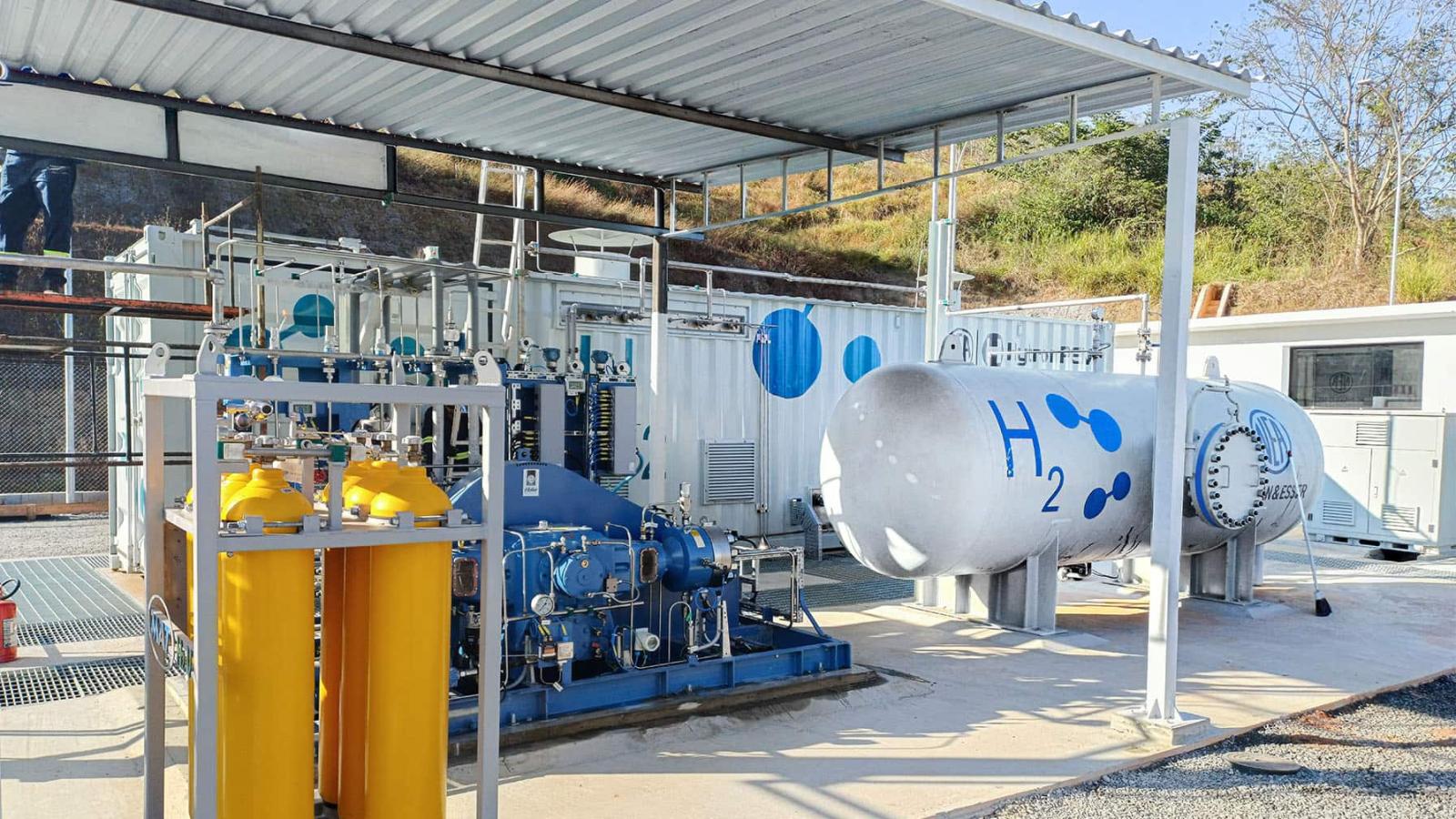 Felipe Malavazi/GIZ Brasil
Felipe Malavazi/GIZ Brasil
Electrolysis container, hydrogen compressor and storage unit on the campus of the Federal University of Itajubá
Lighter cargo bikes
Around 400,000 people work as bicycle or motorbike couriers in Brazil. Most are from marginalised social groups. The jobs are poorly paid and dominated by men – working as a bike courier is extremely hard, especially in hilly cities such as Rio de Janeiro. With technical and financial support from the H2Brasil project, the state university there is now trialling the use of hydrogen cargo bikes that significantly reduce the physical effort required and therefore enable more people to enter the labour market. ‘This can have a huge social impact,’ says Project Director Markus Francke. Unlike battery-powered cargo bikes, the hydrogen version only requires a small tank, which makes the bikes lighter and more flexible. As it also avoids the need for long periods spent recharging, this solution is also interesting for logistics companies. If successful, the project can easily be transferred to other countries.
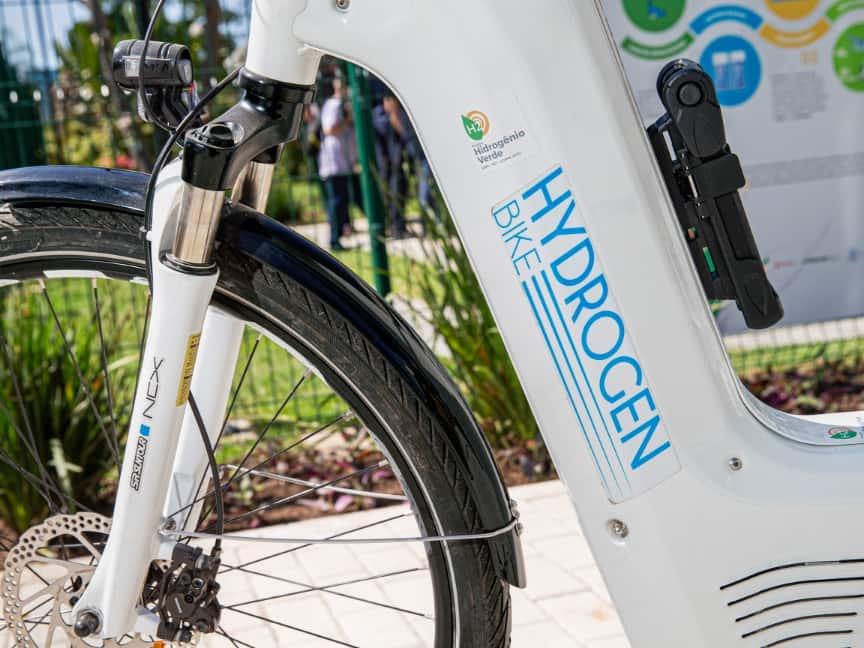 Fernando Souza/GIZ Brasil
Fernando Souza/GIZ Brasil
